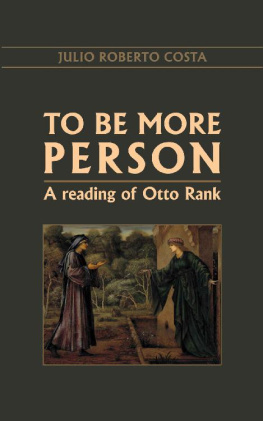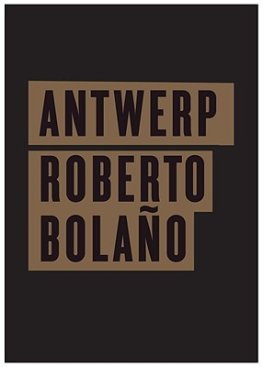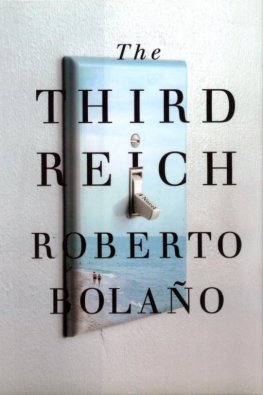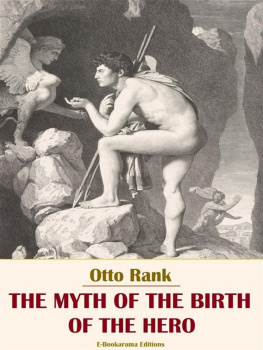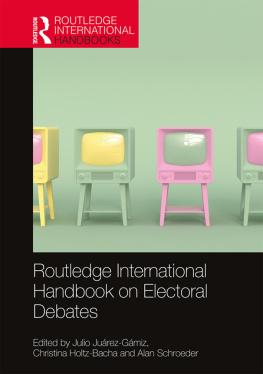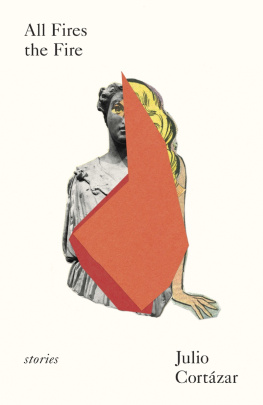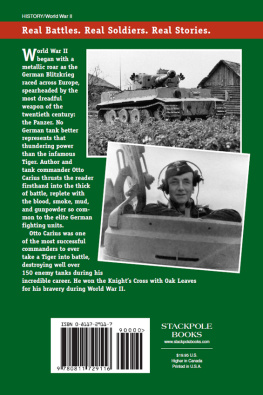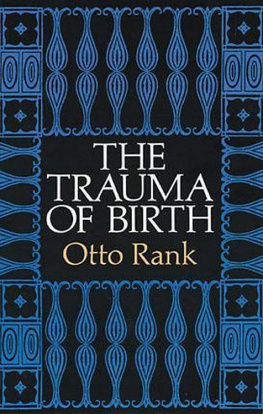Julio Roberto Costa - To Be More Person: a reading of Otto Rank
Here you can read online Julio Roberto Costa - To Be More Person: a reading of Otto Rank full text of the book (entire story) in english for free. Download pdf and epub, get meaning, cover and reviews about this ebook. year: 2014, publisher: Julio Roberto Costa, genre: Religion. Description of the work, (preface) as well as reviews are available. Best literature library LitArk.com created for fans of good reading and offers a wide selection of genres:
Romance novel
Science fiction
Adventure
Detective
Science
History
Home and family
Prose
Art
Politics
Computer
Non-fiction
Religion
Business
Children
Humor
Choose a favorite category and find really read worthwhile books. Enjoy immersion in the world of imagination, feel the emotions of the characters or learn something new for yourself, make an fascinating discovery.
- Book:To Be More Person: a reading of Otto Rank
- Author:
- Publisher:Julio Roberto Costa
- Genre:
- Year:2014
- Rating:4 / 5
- Favourites:Add to favourites
- Your mark:
- 80
- 1
- 2
- 3
- 4
- 5
To Be More Person: a reading of Otto Rank: summary, description and annotation
We offer to read an annotation, description, summary or preface (depends on what the author of the book "To Be More Person: a reading of Otto Rank" wrote himself). If you haven't found the necessary information about the book — write in the comments, we will try to find it.
To Be More Person: a reading of Otto Rank — read online for free the complete book (whole text) full work
Below is the text of the book, divided by pages. System saving the place of the last page read, allows you to conveniently read the book "To Be More Person: a reading of Otto Rank" online for free, without having to search again every time where you left off. Put a bookmark, and you can go to the page where you finished reading at any time.
Font size:
Interval:
Bookmark:
To be more person:
a reading of Otto Rank
Julio Roberto Costa
To be more person: a reading of OttoRank
Rio de Janeiro: Julio Roberto Costa, Publisher 917073
1st Edition, 2014
ISBN: 978-85-917073-0-0
Translation: Robert Kenyon Walker
Cover design: Daniele Conforti Coelho
Cover painting: The Pilgrim at the Gateof Idleness Edward Burne-Jones
Copyright 2014 Julio Roberto Costa All rights reserved.
Dedicated to my father, Wantuil
Table of Contents
Introduction
OttoRank was a psychoanalyst of noteworthy humanistic culture. His thinking offersus valuable options for a better understanding of the human being andovercoming apparent dichotomies that often impede us from an improvedassessment of the social reality. In his approach to the person phenomenon,he offers truly original ideas regarding the interaction between nature andculture and between the individual and society, which help overcome the apparentcontradiction between what is natural and what is cultural in the behaviorof the person in society.
Likewise,Otto Rank provides us with useful parameters for approaching the question ofvalues, positing specifically human values, without any constraints. Wealso have a quite precise way to disqualify all socially produced reification,reifications that might legitimize affirmations such as the human being isjust that way, without a critical posture vis--vis what is affirmed. InRank's thinking, the will and values, together with other characteristics to beseen in this study, constitute the focal point of subjectivity, where the coreof the human phenomenon is to be found; or to be more precise, it is a specificphenomenon within nature and culture: the person phenomenon.
Accordingto Rank, that which is human has its origin in the person phenomenon;when we speak of values, we must be aware that these real values aretied to a design or life project, which is to be more person.
Thusat a time when society around us seems petrified in its destruction of thehuman being by nihilism, drug abuse, meaninglessness and consumerism, the workof Otto Rank brings the fresh air of a courageous way of thinking, of tirelessrigor in viewing the human person in that which is proper to him or her: vigorin building and living a life with human dignity. Carrying Freud's determinismto its logical conclusion, he re-encounters the human determinism of will andreveals the place where this will is going to act: in a specifically humanenvironment of personal beings, who construct themselves in interaction anddialogue. Rank helps unmask the petrification and reduction of human beings tomaterial things imposed upon men, women, children and the aged; here we find,at the core of their subjectivity, the conduct of being more person, ofgrowth of everybody with the values of that which is simply human.
Note:The expression to be more will be used in this essay in a different sensethan that employed by Brazilian educator Paulo Freire, but with certainsimilarities, which may well be the object of study in a future work.
1 Otto Rank as a Psychoanalyst
Itis true that the name of Otto Rank is not well known. Most of the time, he isonly mentioned in contexts ranging from transpersonal psychology to comparisonsbetween Freud and Nietzsche. In the history of psychoanalysis, he is seen as apsychoanalyst of the circle of Freud who changed direction upon adoption of thehypothesis of the birth trauma, an hypothesis supposedly refuted subsequently.
AmongFreud's disciples, Rank was unique in that his origins were not in the field ofmedicine. He had more ties to the fields of philosophy and literature, andadmired the writings of Schopenhauer, Nietzsche and Ibsen, etc. This admirationwas extended to the personalities of these and other great men of the historyof mankind, concomitantly with a special fascination with the figure of theartist. Rank was already an avid reader of Nietzsche and Schopenhauer when heencountered Freud and psychoanalysis. He soon became an admirer of Freud'stheory, believing that in it he had found the great response to all questionsinvolving the human being. Strong ties were created between him and Freud, withexpectations met by both in all aspects. Thus Freud wrote:
One day a young manwho had studied at a technical school introduced himself to me with amanuscript manifesting rare comprehension.... In him, our small society gaineda conscientious and trustworthy secretary, and I had in Otto Rank a faithfulhelper and collaborator. (Alexander et al, 1981)
Rankbegan to participate in several different activities. With Hanns Sachs, hefounded the journal Imago; published, together with Sandor Ferenczi andErnest Jones, the Internationale Zeitschrift fr Psychoanalyse, andcollaborated with Sachs and Ferenczi in various studies. He was not in any waya secondary figure in the midst of Jung, Adler and all the others.
Hestarted working on an hypothesis derived from his own clinical experience,which was the birth trauma. At the core of this hypothesis was separationanxiety, archetypically experienced in the birth of the child; and the reactionto this primal angst, as Rank called it, would orient the future developmentof the individual, in which he or she would either resolve it in different waysor be subject to neurosis. As psychiatrist Carlos Jos Hernandez tells us,
In the sacredunconscious there is an engram at the level of proto-phantasies that hasrecorded the founding, i.e. primordial occurrence, with all its anxiety. Thisrecord recounts the loss of an ideal situation, where we were protected inones mother's womb, in an environment of plenitude.... In abandonment of theuterine world is shaped all abandonment; it is the passage from a situation ofprotection to a defenseless situation, in which it is necessary to relearn anew adaptation... a man's whole life is an attempt to reduce the impact of theanxiety provoked by every type of separation. There was a lost paradise wherethere was no anxiety and we will move on to a future paradise where there willbe no anxiety. (Hernandez, 1986, p. 44-45)
WhenFreud saw the book, he initially considered the work as an importantcontribution to psychoanalysis. However, some time later, he perceived that ifbirth trauma were correct, the importance of the Oedipus complex would bediminished. They were, therefore, mutually exclusive. When Freud urged Rank torecant, he did not do so, giving rise to an embarrassing situation, painful forboth Freud and Rank.
Thesituation having become unbearable, Rank abandoned Freud's circle to develophis own school of thought. In the process, he arrived at a constructive psychologyof the will, as he designated it. At that point, he had already moved far awayfrom the psychoanalytic paradigms.
1.1 - Constructive Psychology of the Will
Bythe very non-reductionist nature of his thinking, it is somehow too daunting atask to try to summarize Rank in a few words. As for constructive psychologyof the will, it should be borne in mind that such a definition might easily bemisinterpreted. For example:
a) Constructivemeans both not determined by infra-personal factors, and genetic, referringto the genesis of the individual as a human being.
b) Of the willemphasizes an element which, although grounded in drive, is enriched by thephenomenon of the human person, who will orient and give purpose to it withina cultural context which is the locus of the person.
This constructive psychologyof the will was to lay the groundwork for a philosophy of the psychic, whichwould be more comprehensive, dealing, as it does, not only with psychologicalaspects related to the clinic, but also with the epistemological aspects.
Font size:
Interval:
Bookmark:
Similar books «To Be More Person: a reading of Otto Rank»
Look at similar books to To Be More Person: a reading of Otto Rank. We have selected literature similar in name and meaning in the hope of providing readers with more options to find new, interesting, not yet read works.
Discussion, reviews of the book To Be More Person: a reading of Otto Rank and just readers' own opinions. Leave your comments, write what you think about the work, its meaning or the main characters. Specify what exactly you liked and what you didn't like, and why you think so.

